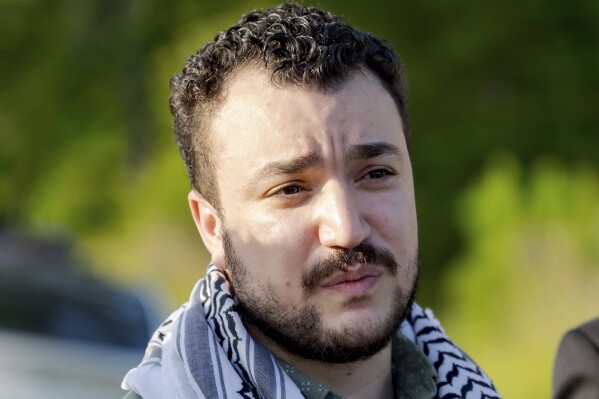Anti-Israel activist Mahmoud Khalil, a graduate student at Columbia University, has shared controversial remarks in a new podcast interview with The New York Times. Speaking on The Ezra Klein Show, Khalil said he viewed the October 7 Hamas attack that killed over 1,200 people in Israel as a desperate act meant to draw the world’s attention to the suffering of Palestinians in Gaza. While he acknowledged the attack was wrong and said targeting civilians is never justified, he also described it as an emotional reaction from a people who had no other path to recognition.
Khalil argued that the attack came at a time when Palestinians felt excluded from major political discussions, especially with talks of a Saudi-Israel deal on the horizon. According to him, there was no active peace process, and Palestinians saw no hope for statehood or self-determination. He claimed this frustration pushed Hamas to act in a way they believed would force the global community to notice.
Originally born to Palestinian parents in Syria, Khalil has become a well-known figure in the recent wave of anti-Israel protests on U.S. college campuses. In March, immigration officials arrested him at Columbia University, citing his leadership role in demonstrations that clashed with U.S. foreign policy interests. Senator Marco Rubio later supported the push for his deportation, arguing that individuals who support extremist groups or disrupt public order should not be allowed to stay in the country on student visas.
Rubio defended the government’s position by saying visa holders must uphold U.S. values and that Khalil’s activism crossed the line. He insisted that supporting Hamas or contributing to unrest on campuses is grounds for immediate removal.
Despite efforts to deport him, a federal judge ruled that Khalil could be released on a $1 bond as his immigration and civil cases continue. Meanwhile, the Department of Justice is still pushing to keep him detained.
During the interview, Khalil expressed sympathy for Palestinians who have lived through decades of hardship. He said their anger should be understood in the context of long-term suffering, including military occupation, violence, and restrictions on movement and basic rights. According to him, Palestinians have endured years of humiliation and injustice, and expecting them to respond in silence is unfair.

